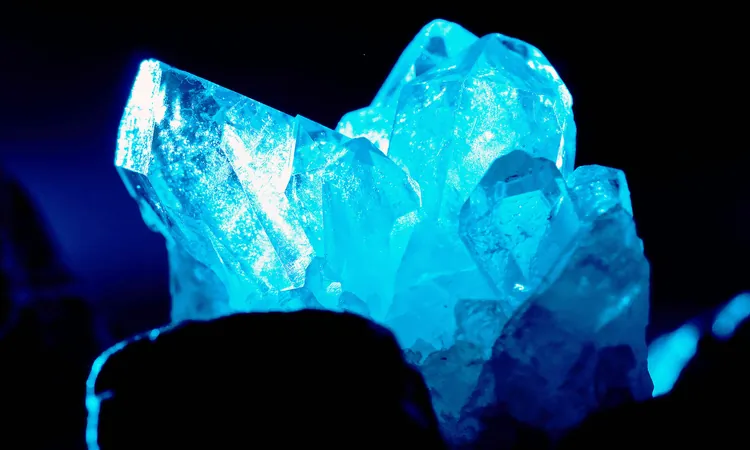
Groundbreaking Brain Cell Transplants Could Hold the Key to Curing Alzheimer's, Experts Reveal!
2024-11-11
Author: Ting
Introduction
Alzheimer's disease is a relentless thief, robbing millions around the globe of their cherished memories and autonomy. But a groundbreaking study from McGill University in Canada is sparking hope for those affected by this neurological nightmare — they may have uncovered a revolutionary solution through brain cell transplants!
The Role of Astrocytes in Alzheimer's Disease
Astrocytes, a unique type of star-shaped brain cells, play a critical role in protecting neurons and are essential for information processing. Research has shown that these important cells diminish as Alzheimer's progresses, particularly impacting the regions of the brain tied to memory. As scientists delve deeper, they are becoming increasingly certain that replenishing damaged astrocytes could restore some of the cognitive functions lost to Alzheimer's, as well as tackle other devastating neurodegenerative disorders like Parkinson's and Huntington’s disease.
McGill University Research Findings
The McGill University research team describes this approach to brain cell transplants as a 'promising and exciting strategy' that could revolutionize treatment for several neurological conditions. In a fascinating 2023 study published in The Journal of Neuroscience, experts demonstrated that transplants in mice yielded remarkable benefits.
Methodology of the Study
To ascertain the viability of these transplants, researchers extracted astrocytes from the cerebral cortex of healthy, newborn mice — the brain region responsible for higher cognitive functions. These mice were genetically modified to make their brain cells glow red, enabling researchers to track the transplanted cells through neuroimaging.
Results of Astrocyte Transplants
The astonishing results? The transplanted astrocytes thrived for an entire year within the new brains, integrating seamlessly and developing as expected. These cells exhibited an impressive range of receptors and ion channels, crucial for enabling communication throughout the brain’s different regions.
The Role of Age in Integration
However, the study also uncovered an intriguing caveat: the age of the recipient mice played a significant role in how well the transplanted cells integrated. Astrocytes spread extensively in the brains of younger mice but were notably less mobile in older ones, remaining close to the transplant site. This highlights the complexity of brain health across different ages and suggests that individualized approaches may be necessary for optimal results.
Characteristics of Astrocytes
Moreover, the research indicated that astrocytes possess distinct characteristics depending on their location in the brain or spinal cord, which affects their ability to integrate in various brain regions. This knowledge is vital for developing effective therapies tailored to combat Alzheimer's and other neurological diseases.
Previous Studies and Implications
Additionally, earlier studies published in Biology & Life Sciences have shown that transplanting astrocytes can enhance brain plasticity — the vital ability of the brain to adapt — and facilitate regeneration following injuries and in cases of neurological illness. Another notable study from the University of California San Diego School of Medicine demonstrated that mice with Parkinson's disease that received astrocyte transplants reverted to a non-disease state and maintained this improvement for life!
Conclusion and Future Directions
As researchers forge ahead with their studies, they anticipate that advances in astrocyte transplants could dramatically enhance the quality of life for patients suffering from a range of neurological disorders. The future may very well hold a cure that not only helps those with Alzheimer's reclaim their memories but also offers restoration and hope for a brighter tomorrow. Stay tuned as this exciting field of research unfolds!


 Brasil (PT)
Brasil (PT)
 Canada (EN)
Canada (EN)
 Chile (ES)
Chile (ES)
 España (ES)
España (ES)
 France (FR)
France (FR)
 Hong Kong (EN)
Hong Kong (EN)
 Italia (IT)
Italia (IT)
 日本 (JA)
日本 (JA)
 Magyarország (HU)
Magyarország (HU)
 Norge (NO)
Norge (NO)
 Polska (PL)
Polska (PL)
 Schweiz (DE)
Schweiz (DE)
 Singapore (EN)
Singapore (EN)
 Sverige (SV)
Sverige (SV)
 Suomi (FI)
Suomi (FI)
 Türkiye (TR)
Türkiye (TR)